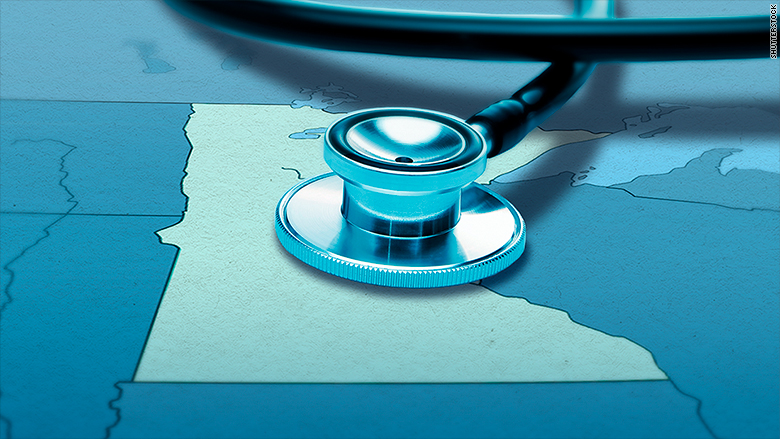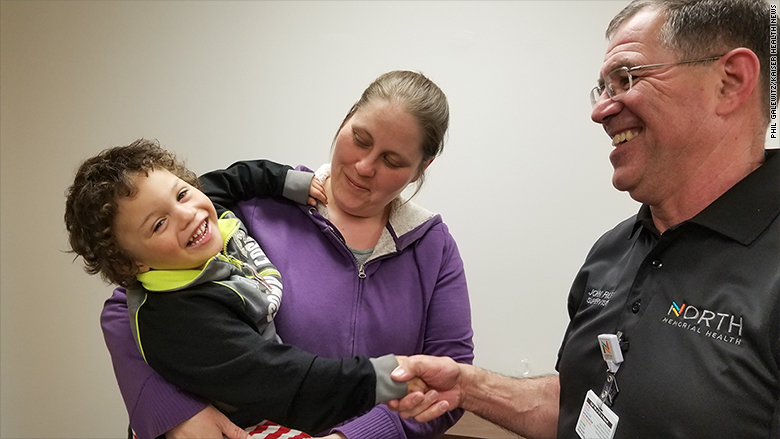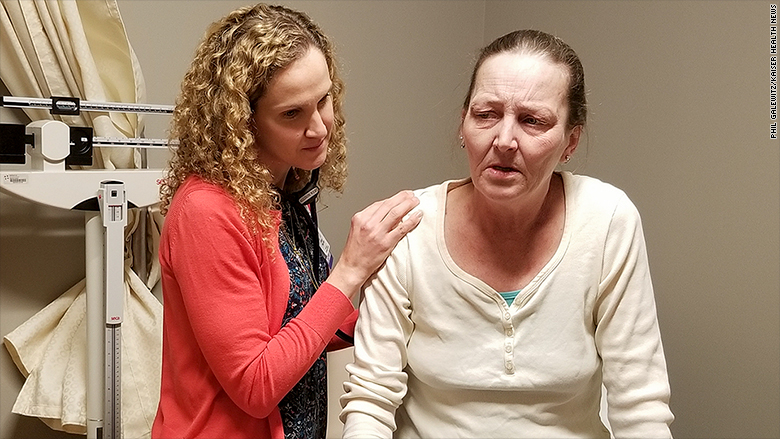
Sandy Dowland has been to the emergency room 10 times in the past year and was hospitalized during four of those visits. She has had a toe amputated and suffers from uncontrolled diabetes, high blood pressure, major depression, obesity and back pain.
But her health is not high on the 41-year-old woman's priority list.
"I have a lot going on," said the unemployed mother of five who lives in a homeless shelter
Her health bills are covered by Medicaid, the state-federal health insurance program for the poor. But state officials say Medicaid is busting Minnesota's budget, particularly with patients like Dowland and its system of paying hospitals for each admission, ER visit and outpatient test.
To ease that financial strain, Minnesota is at the forefront of a growing number of states testing a Medicaid payment system. It rewards hospitals and physician groups that hold down costs by keeping enrollees healthy.
Under this arrangement, those health care providers are asked to do more than just treat medical issues such as diabetes and heart disease. They are called on to address the underlying social issues — such as homelessness, lack of transportation and poor nutrition — that can cause and exacerbate health problems.
It's why North Memorial arranged for a community health worker and paramedic to meet Dowland on a recent weekday at a day care center for homeless families. They advised her on how to take her insulin, prodded her to use a patch to quit smoking and helped her apply for Social Security disability payments and food stamps.

"This is nice to have someone who I can talk to about everything in my life and give me access to the community resources I need," said Dowland
North Memorial is among 21 health systems in Minnesota participating in this new model of care, called accountable care organizations. ACOs get to share in money they save Medicaid by sticking to a budget and reaching quality targets, such as averting hospital-acquired infections and controlling patients' blood pressure and asthma.
The shift toward ACOs is occurring with Medicare and employer-sponsored insurance, too. But for Medicaid programs, it presents unique challenges. Medicaid enrollees, by definition, are low-income. Many have little experience navigating health systems and large numbers are homeless or dealing with mental health problems, conditions that can lead to difficulties in encouraging healthy behaviors.
"The goal [of ACOs] is really exciting: To make health systems more responsive to what people need to be healthy," said Ann Hwang, director of the center for consumer engagement and health innovation at Community Catalyst, a Boston-based consumer advocacy group. "But the jury is still out as to whether they are really moving the needle in addressing ... the things we know affect people's ability to be healthy."
Nationwide, a dozen states are experimenting with Medicaid ACOs, and 10 more are making plans for them.
About half of Minnesota's 1 million Medicaid recipients are in ACOs, which officials said saved the state $213 million since 2013. Hospitals and doctors received $70 million of that.
In addition to North Memorial, other participating health systems include the Mayo Clinic and Hennepin Healthcare, the state's largest safety net provider based in Minneapolis.
Related: The high cost of taking away prisoners' Medicaid coverage
So far, though, the model isn't proving to be a panacea.
In six states using ACOs, Medicaid enrollees received more primary care services — such as doctor visits — but the program did not reduce hospital visits in most of the states or lower costs, a March federal study found.
Minnesota's experience demonstrates the challenges of changing to a new Medicaid payment system. In 2016, the latest year data are available, only six of the 16 ACOs were eligible to share in cost savings.
But Marie Zimmerman, Minnesota's Medicaid director, noted the state's program has seen a 7% cut in ER visits and a 14% reduction in hospital stays in areas where health providers participate in an ACO.

"Medicaid is 20% of Minnesota's population, and we have to care about getting the best deal and the long-term fiscal ability of the program and not cutting eligibility and provider rates and benefits to show sustainability," she said.
The switch to ACOs accelerated efforts by hospitals and physician groups to attack so-called social determinants of health, such as the lack of stable housing and poor nutrition. But providers still struggle to change patients' behaviors, particularly helping those with addiction and mental health problems, according to interviews with officials at several ACOs.
Related: Trump administration allows states to make Medicaid recipients work
Even with teams of nurses, social workers and community health workers, Hennepin Healthcare officials say it's a challenge keeping up with many of these Medicaid enrollees. Many patients still go to the ER out of habit or convenience rather than the organization's primary care clinics, which are as close as across the street.
Yet, there are success stories, too. The Mayo Clinic has started a community health worker program to help at-risk patients connect to social services such as housing and transportation.
Nancy Zein, 47, a Medicaid recipient who uses the Mayo Clinic, said having weekly meetings with community health worker Tara Nelson has been life-changing for her and her mother, who is also on Medicaid.
"She's been a godsend," said Zein, who noted how Nelson helped her get Social Security disability payments and her mom find affordable housing for disabled adults, as well as get both enrolled for food stamps.
"It's made such an impact on our health," Zein said. "My mom has depression issues, and with Tara helping us with housing, it helped her depression."
Kaiser Health News is a nonprofit news service covering health issues. It is an editorially independent program of the Kaiser Family Foundation that is not affiliated with Kaiser Permanente.


